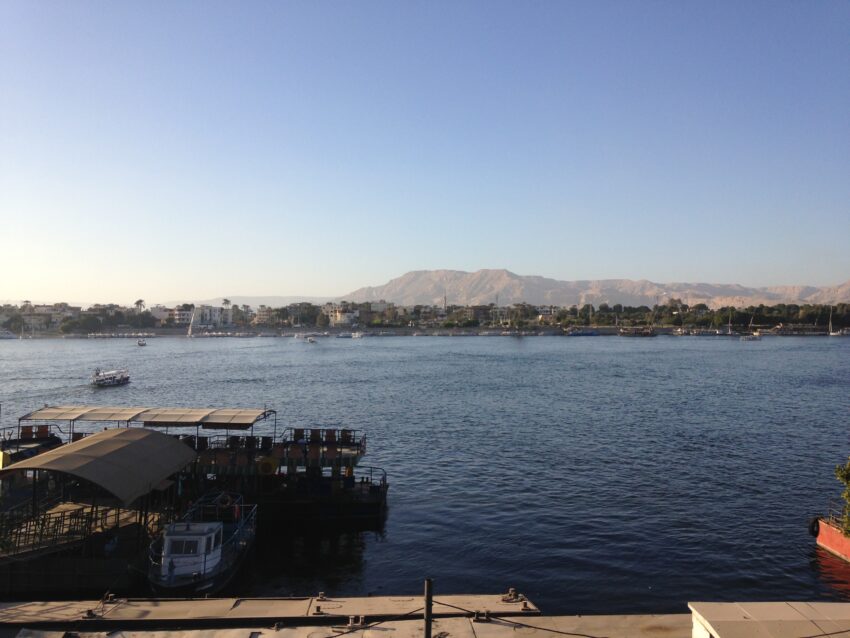While night falls over 2018 and fireworks are popping, I fondly think back of my latest sojourn in Luxor. It feels a bit double, because of the recent terrorist attack that killed four people in Giza. Even before this incident, my non-Egyptologist colleagues were a bit wary about my enthusiasm of spending pre-Christmas holidays in Egypt. But I feel oddly at home in that country, and I’ve never felt unsafe there, except maybe in traffic (that includes EgyptAir flights).
I chiefly went to Egypt because I needed to think about what to do with my life (you get that when you’re around 30) and to feel the sunshine on my face. And while I was there I took the opportunity to make loads of photos of pretty little coloured tombs in order to try some photogrammetry. The results so far are promising! Eventually, wouldn’t it be great if foreign missions could hire me to do their digital epigraphy/photogrammetry/3D modeling and I would never have to spend winter in the Netherlands again…
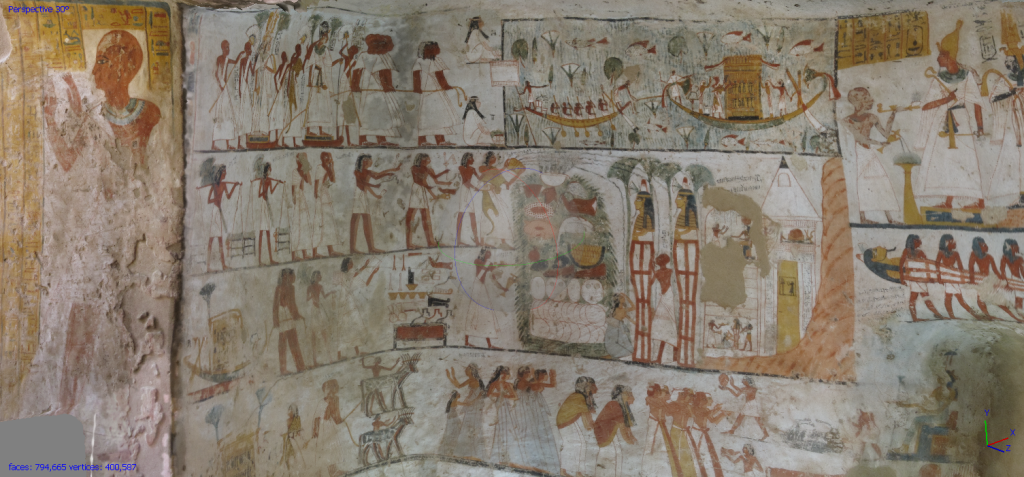
Stay tuned for 3D stuff.
In Luxor, prices have gone up a bit since the floating of the Egyptian pound and the increase in oil prices. The national ferry to cross the Nile now costs a staggering 5 EGP for tourists (I’m joking, obviously, that’s 25 cents). A motor boat costs 20 EGP (1 euro). A minibus from the ferry to the taftish (ticket office) on the West Bank still costs 2 EGP, a private taxi 20. Delicious dinner at Amon Hotel is only 5 euros per person, while a copious lunch at Marsam costs about 10 euros. At the lovely Atta bakery, half a kilo of butter cookies and a fresh brown bread cost 2 euros combined, and small bananas at the greengrocer sell at 5 cents each. Delicious ice cream at Wenkies (around the corner from Passport Street and the expensive hotels) goes at 40-50 cents per scoop, and the German couple who run this shop keep coming up with the best new flavours (buffalo milk, doum, hibiscus, pomegranate, sesame, gingerbread, marzipan, coffee-chocolate-banana without milk and the list goes on).
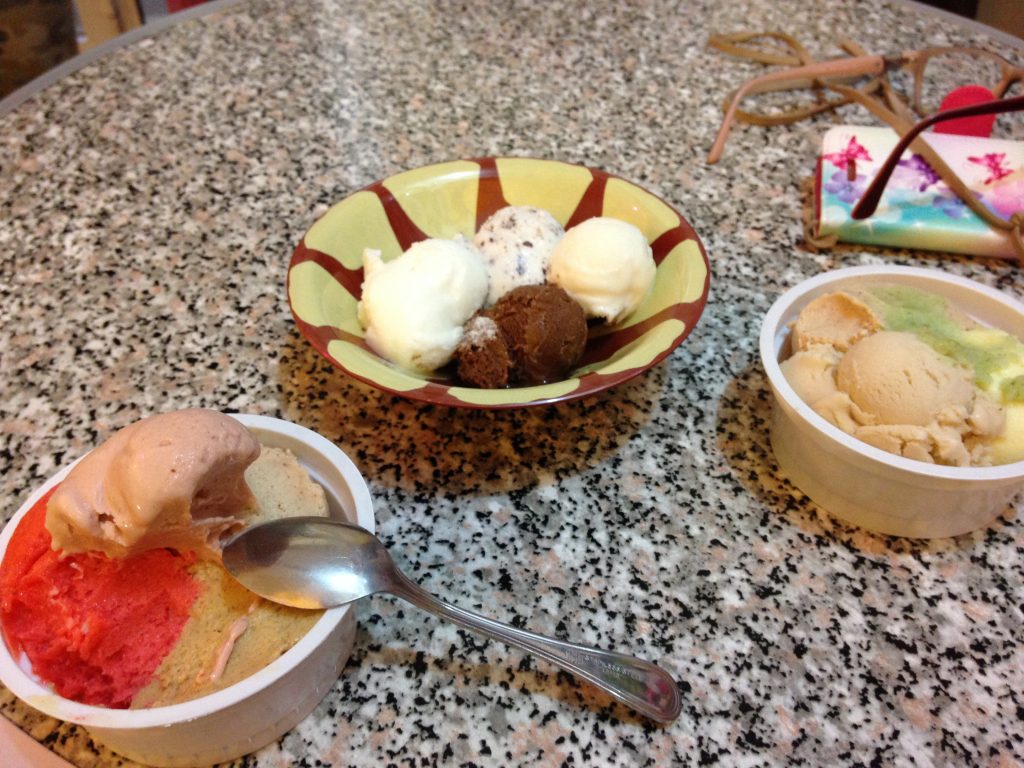
Too much ice cream at Wenkies. We skipped dinner.
What I mean to say is, even though life is getting more expensive everywhere, you can still live like a king in Luxor while partaking healthily in the local economy. It is a pity that most tourists are stuck in touring cars that leave their motors running all day to keep the AC blasting, sleep in designated hotels, eat at designated restaurants and buy their souvenirs in designated shops. The most expensive thing about Luxor is getting there, as there are no direct flights, but once you’re there, you can go where your fancy takes you – up in a hot air balloon, down into the splendid tomb of Seti I, sailing on the Nile or simply watching the bustle in the square in front of Luxor Temple from Aboudi Coffee Break with a glass of thick strawberry juice. As it was Christmas holidays, I saw plenty of tourists with children, which is perfectly possible if they’re not too young. The Nile Valley Hotel on the West Bank where we usually stay is family-friendly, with a small pool, children’s menus, large rooms and easy access to all the monuments. The Dutch-Egyptian owners have a very lively bunch of children themselves. Good news: the lift has finally arrived in the new wing, and it’s a shiny affair.
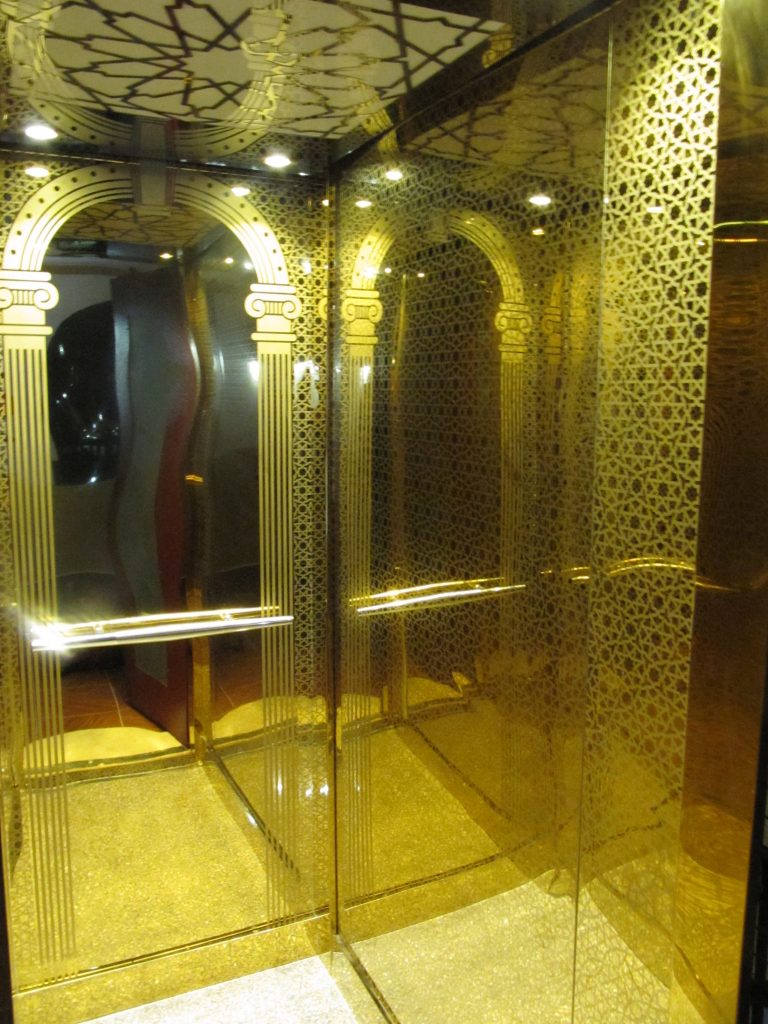
Gorgeous, isn’t it?
This time, instead of blundering through as many temples and tombs as possible, we took the time to walk around the West Bank, through the villages and countryside. I’ve seen some lovely property for rent by the Nile, as well as some gorgeous dahabiya’s. We walked along banana fields, canals and people going about their business. Children kept asking for what I first misheard as either ‘money’ or ‘pony’ (because, why not), but fortunately they meant ‘bonboni’. It is always good to have extra sweets at hand to create some goodwill.
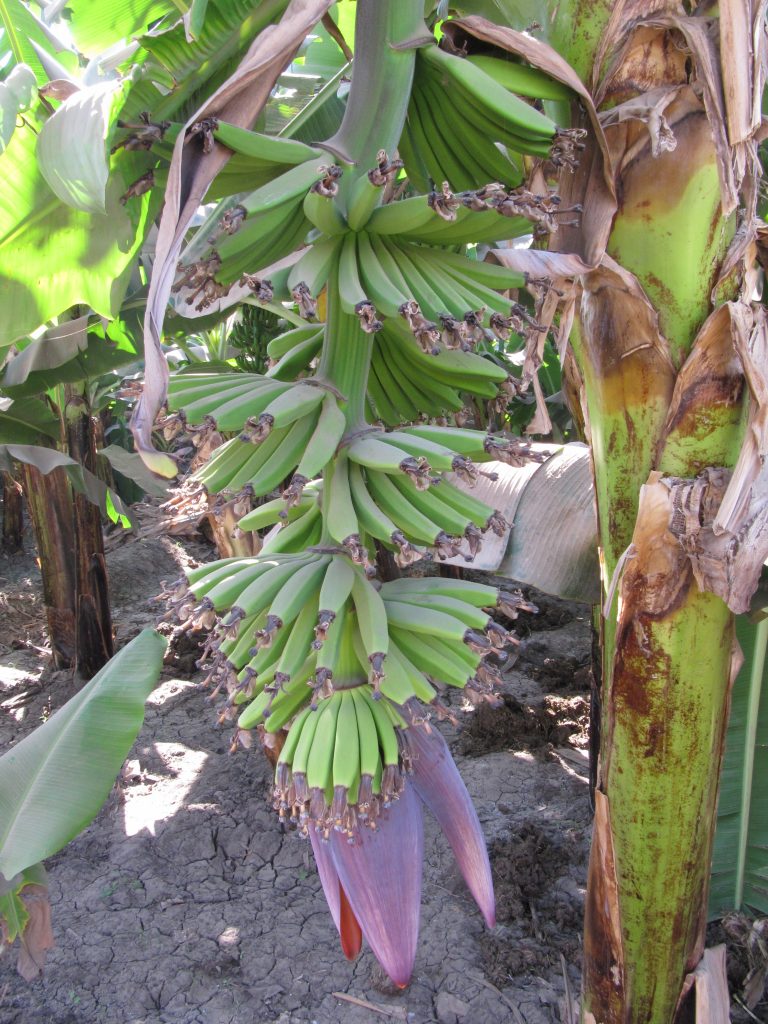
Who knew how bananas grew? (I’m a city girl).
An anecdote from the ticket office: Window 1 opens, friendly man says good morning, how are you, where are you from, etc. I ask for tickets and photo tickets. I get the tickets but photo tickets should be acquired from window 2. Second man bangs stick out of window 2 to indicate where I should go. Repeat polite conversation at window 2. The next day the man behind window 1 seems delighted to see me again and the whole business repeats itself. Except now we are friends and he requests bonboni. ‘Bukra’ (tomorrow) says my travel companion cleverly, but of course, the next day we arrive at the same window and we have to deliver. I offer a roll of grape sugar, trying to explain that it gives energy and he shouldn’t eat the lot at once. He doesn’t really seem to grasp the English word ‘energy’ and I’m afraid that by the time we return, he will have plastered and painted the entire ticket office and composed a new national anthem.
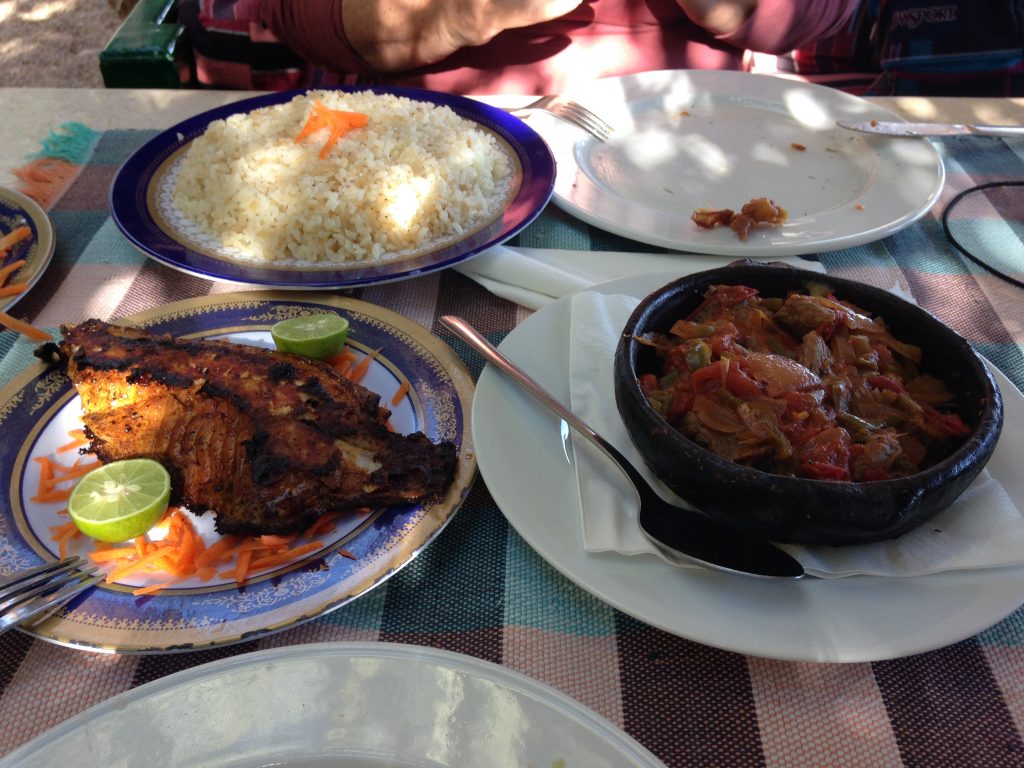
I love food. Lunch at Marsam.
Another anecdote. Because I always forget my debit card when I take a motor boat to the bank for the express purpose of withdrawing money, I started exchanging money at the local ‘Business Men Service’. The business man of the business men service also deals in prepaid cards and once kindly spent an hour on the phone for me with Vodafone after I had driven their only English-speaking employee to distraction. Now it happened that every time I didn’t carry money with me, the shop was open, and every time I wanted to exchange money, it was closed. So I would hang around with the other business men until the owner returned on his motorbike (back from some business, no doubt), each time smiling apologetically. These are some of the silly little things why I like Luxor. The greengrocer comes after you with the equivalent of 7 cents and the baker only wants to sell you his freshest bread. After one week, every person on the West Bank knows your nationality, where you stay and for which archaeological mission you roughly work (I can be very vague about this).
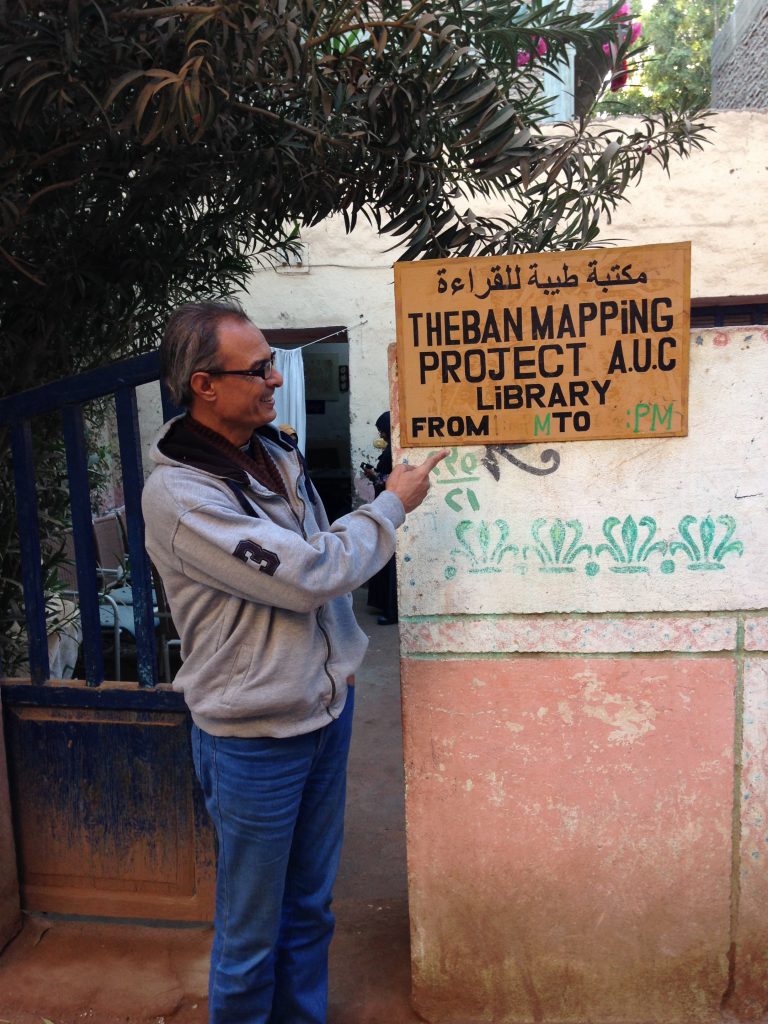
One other thing I’d like to mention is the Theban Mapping Project Library run by Kent Weeks and Ahmed Hassan, who have known each other since Ahmed was a little boy working in KV 5. The library provides space to study quality books for inspectors and Egyptian archaeologists (there is no public library on the West Bank), as well as teaching local women to read and write and doing crafts with the children from the villages. The library, now located in a rented place in the street leading to Amon hotel and Atta bakery, next to Hamdy’s house (the West Bank lacks street names) will soon move to their own property which will have plenty of space. Any material you can spare they heartily accept, so I brought a bag of colourful wool and my travel companion donated her drawing supplies. Next year I hope to bring a suitcase full of necessities, for I warmly recommend this social cause. They’re open daily in the afternoons and everyone is welcome. On Fridays they do crafts with the kids. You can find them on Facebook.
In relation to this, I’m happy to say that the Theban Mapping Project website is up and running again! For me it works better in Internet Explorer than in Chrome. To read more about Kent Weeks, the Theban Mapping Project and KV 5, read The Lost Tomb, written twenty years ago but still highly enjoyable.
That’s it for now folks, enjoy the champagne and fireworks, and have a safe, awesome, loving 2019!
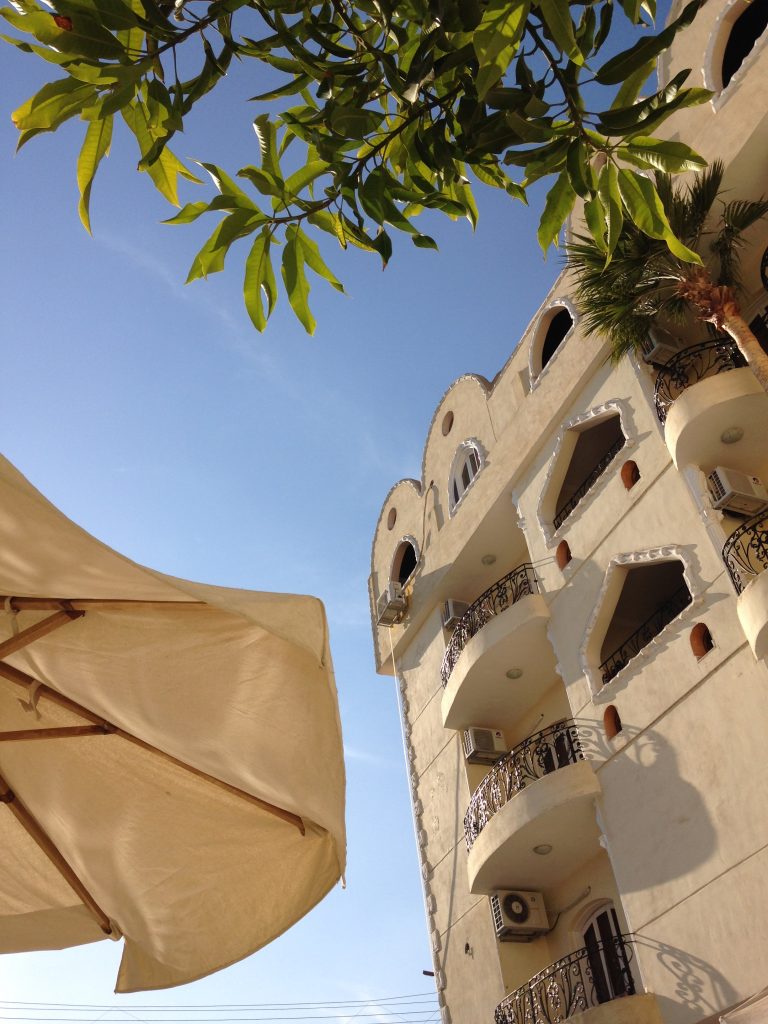
This. (Nile Valley Hotel).
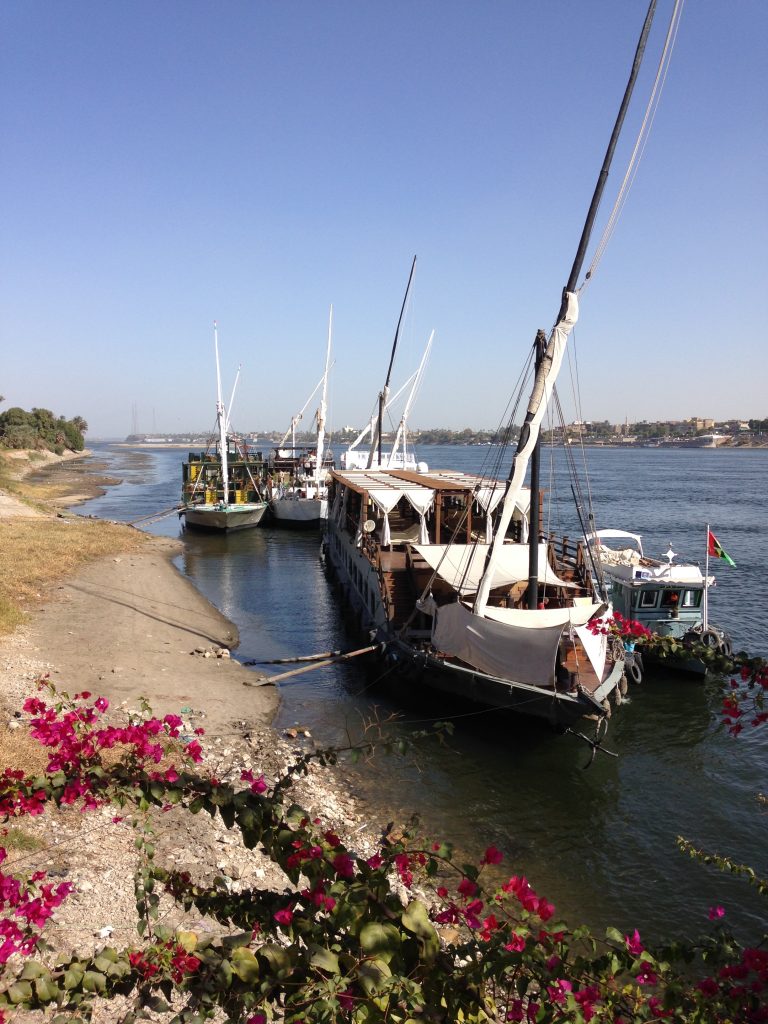
Also this. (My future dahabiya).
